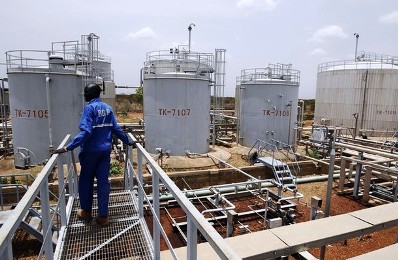S. Sudan’s national oil company hikes fuel prices for hotels
February 13, 2017 (JUBA) – South Sudan has increased rates at which hotels purchased fuel at filling stations, sparking speculations it could push prices for hotel rooms.

“You know that NilePet supplies about 30% of market, which is unsustainable. It is practicable. The government is overstretched with priorities and therefore is there a need to plan better and to operate within the available resources until the economy is okay”, Machar Ader Achiek told Sudan Tribune Monday.
For months, South Sudanese have been in queues waiting to get fuel others, while others are forced to buy fuel on the black market, sometimes paying triple the price.
Achiek said 40% of the fuel has been subsidized, adding that fuel was currently sold at 22 SSP instead of 37 SSP. The official explained that his institution has raised 60 SSP.
Last week, South Sudanese lawmakers expressed mixed reactions about removal of fuel subsidy, with some welcoming the decision and others saying it will increase the prices.
Nilepet procures fuel outside the country and sells a litter once it is imported at the cost of 22 pounds at the petrol filling stations. But citizens have always complained of lack of fuel at the designated fuel stations, even when they stay in line for hours.
There are claims that several senior government officials and military officers use their influence and privileges to obtain fuel from Nilepet and allegedly sends it to the black market where it is sold at prices higher than the official charges.
Since its independence, South Sudan has relied on oil for all income—a situation that has significantly compounded ongoing political and economic instability due to fall in crude oil prices.
According to South Sudanese officials, production in the past reached as high as 350,000 bpd but fell after a dispute with Sudan over fees for pumping South Sudan’s crude through Sudan’s export pipeline, which led Juba to halt production in 2012.
South Sudan got the lion’s share of the oil when it split from Sudan in 2011, but it’s only export route is through Sudan, giving Khartoum leverage and leading to ongoing pricing disputes
(ST)
